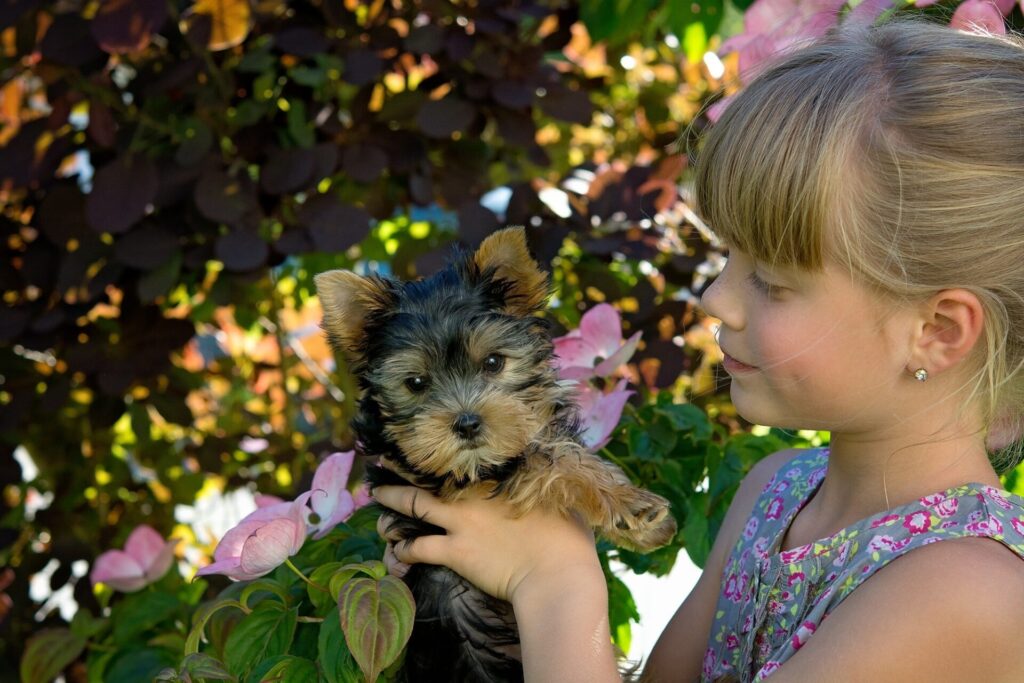Scientific Evidence Shows That Your Yorkie Can Adopt Your Personality with Time

Have you ever noticed a dog owner whose dog’s personality is quite eerily similar to their own personality?
Well it may be more than just a coincidence, according to scientists.
A study was published from the Applied Animal Behaviour Science official, where dog owners were interviewed and requested to rate themselves on the five major personality facets.
They were then asked to rate their dog’s personality traits.
These personality dimensions are known as “The Big Five” in the psychology community.
The five personality traits are:
- Agreeableness
- Conscientiousness
- Extraversion
- Neuroticism
- Openness

PHOTO: Pexels
Just like human children, the way you behave in front of your dog can actually shape their own personality over time.
The range of behaviors which influences your dog’s personality can be simply spending time rubbing your dog’s belly, taking them out for walks, playing a game with them, to the other side of the scale for things like shouting at your dog, airing your frustration at them when they excessively bark or chew things etc.
The study from Michigan State University is a one of its kind, and reveals that dogs personalities do indeed change over time.
“When humans go through big changes in life, their personality traits can change. We found that this also happens with dogs – and to a surprisingly large degree,” according to lead author and Professor William Chopik. “We expected the dogs’ personalities to be fairly stable because they don’t have wild lifestyle changes humans do, but they actually change a lot. We uncovered similarities to their owners, the optimal time for training and even a time in their lives that they can get more aggressive toward other animals.”
This research is to date one of the largest and first ever of its kind, it was originally published in the Journal of Research in Personality.
1600 dogs were used, the owners interviewed and studied. More than 50 different dog breeds were involved. The ages of the dogs also ranged from three weeks to 15 years old, the dogs gender was approximately 50 / 50 to get an even match in the research.
Dog owners were instructed to evaluate their dogs personalities. They were also questioned about their dogs behavioral history, lastly the dog owners were surveyed about their own personalities.

PHOTO: TheYorkieClub
“We found correlations in three main areas: age and personality, in human-to-dog personality similarities and in the influence a dog’s personality has on the quality of its relationship with its owner,” Chopik said. “Older dogs are much harder to train; we found that the ‘sweet spot’ for teaching a dog obedience is around the age of six, when it outgrows its excitable puppy stage but before its too set in its ways.”
One of the traits that tends not to change in dogs is anxiety and fear, said Chopik.
Chopik’s findings prove how much power humans have over influencing a dog’s personality. He explained that many of the reasons a dog’s personality changes are a result of the “nature versus nurture” theory associated with humans’ personalities.
The owners who felt happiest about their relationships with their dogs reported active and excitable dogs, as well as dogs who were most responsive to training. Aggression and anxiety didn’t matter as much in having a happy relationship, Chopik said.
The research clearly suggest that your dog definitely is likely to pick up on your personality and adapt it within its own personality.
“There are a lot of things we can do with dogs – like obedience classes and training – that we can’t do with people,” he said. “Exposure to obedience classes was associated with more positive personality traits across the dog’s lifespan. This gives us exciting opportunities to examine why personality changes in all sorts of animals.”
“Say you adopt a dog from a shelter. Some traits are likely tied to biology and resistant to change, but you then put it in a new environment where it’s loved, walked and entertained often. The dog then might become a little more relaxed and sociable,” Chopik said. “Now that we know dogs’ personalities can change, next we want to make strong connection to understand why dogs act – and change – the way they do.”
sources: https://www.sciencedirect.com/science/article/pii/S0092656618301661?via%3Dihub
Share this on Facebook below if you found this interesting.
